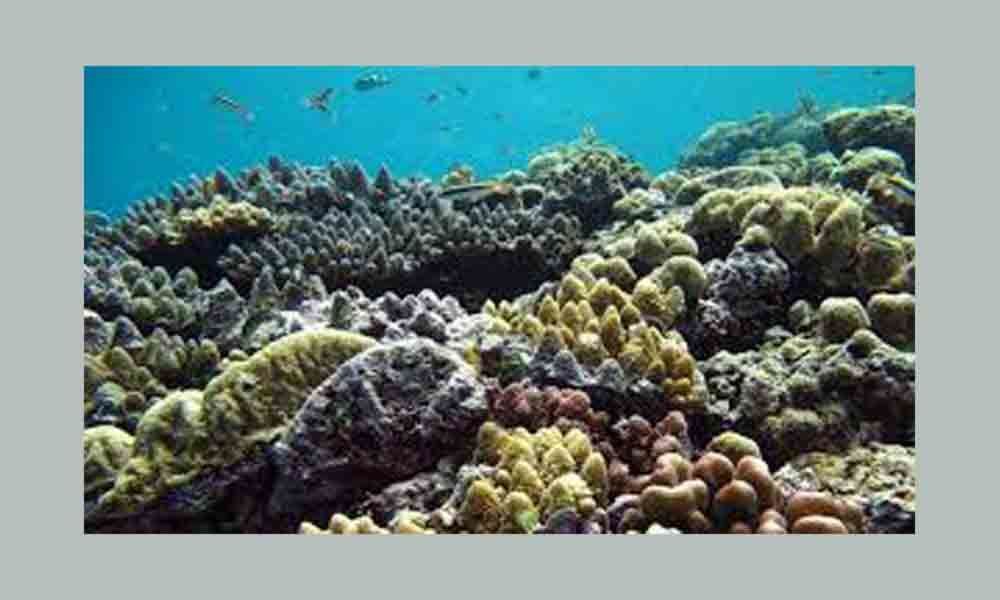Marine heatwaves, a bigger threat to coral reefs

Marine heatwaves are a much bigger threat to coral reefs than previously thought, according to a study that reveals a previously unrecognised impact of climate change on reefs.
Melbourne (PTI): Marine heatwaves are a much bigger threat to coral reefs than previously thought, according to a study that reveals a previously unrecognised impact of climate change on reefs.
The study, published in the journal Current Biology, shows for the first time what really happens to corals during marine heatwaves. The researchers from the University of New South Wales (UNSW) in Australia also reveal that it's not just coral animals that are affected -- their skeletons start to decay within weeks, too.
This means that the three-dimensional (3D) coral framework which provides home to many other animals on the reef is also at risk, they said. In 2016, the team's research showed that just a 0.5 degree Celsius increase in ocean temperature changes the extent of mortality that happens in coral during bleaching.
In the new study, the team found that severe marine heatwaves not only trigger bleaching events as we have known them -- a breakdown of symbiosis -- but in fact can lead to heat-induced mortality of the coral animal itself. The researchers suggest that severe heatwave-induced mortality events should therefore be considered a distinct biological phenomenon, with more direct damage different from coral bleaching.
"Until now, we have described coral bleaching as an event where the symbiotic relationship between coral and its microbes breaks down and corals lose their main source of nutrition, and the coral can die if the symbiosis is not restored," said Associate Professor Tracy Ainsworth from UNSW.
"But what we are now seeing is that severe marine heatwave events can have a far more severe impact than coral bleaching: the water temperatures are so warm that the coral animal doesn't bleach -- in terms of a loss of its symbiosis -- the animal dies and its underlying skeleton is all that remains," Ainsworth said.
"We find that the skeleton is immediately overgrown by rapid growth of algae and bacteria," said Associate Professor Bill Leggat of the University of Newcastle in the UK. "We were able to study the consequences of this process of rapid colonisation using CT scanning of the coral skeleton -- as would be used in medical imaging.
"We show that this process is devastating not just for the animal tissue, but also for the skeleton that is left behind, which is rapidly eroded and weakened," said Leggat. Researchers were also able to use novel bio-optical techniques that allow them to visualise and study the rapid transition in the coral microbiome for the first time.
"With this technique, we can see microbial communities go from symbionts to harmful coral skeleton-dissolvers," said David Suggett from the University of Technology Sydney.
"Adopting these techniques more broadly will be central to understanding how this process occurs on reefs globally -- we anticipate that heatwave mortality events, and rapid reef decay, will become more frequent as the intensity of marine heatwaves increase," said Suggett.
Scott Heron from James Cook University in Australia said this rapid dissolving of coral skeletons following severe heatwaves hasn't been known to date. "Climate scientists talk about 'unknown unknowns' - impacts that we haven't anticipated from existing knowledge and experience.
This discovery fits into this category. "As we begin now to understand this impact, the question is how many more of these 'unknown unknowns' might there still be that could bring faster and greater damage to coral reefs from climate change," he said.

















